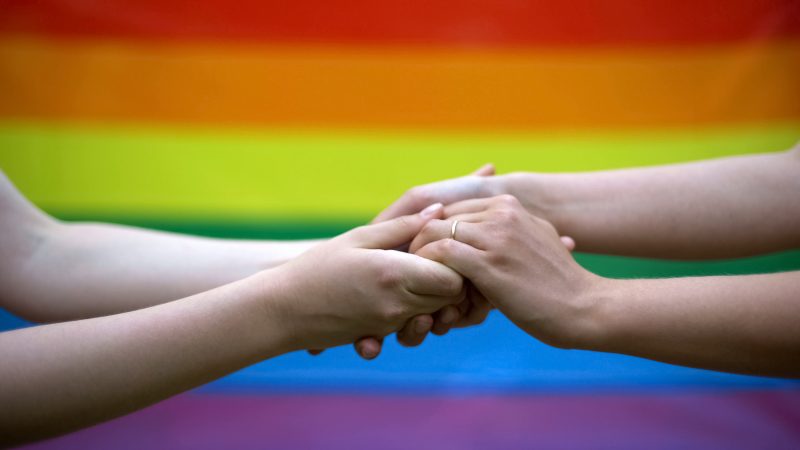One of the ways in which the Supreme Court protects itself from criticism is by burying itself in the arcana of legal debate. Its determinations — yielding lengthy, citation-heavy opinions and similarly academic dissents — are designed to be explorations of precedent and legal theory that are beyond the ken of normal Americans.
But lawyers are lawyers. Just as Justice Samuel A. Alito Jr. can defend his free fishing trips using the familiar syntax of complex legal rationalization, the court’s members are more than capable of taking run-of-the-mill political rhetoric and presenting it as solemnly articulated legal theory. It’s not that the court’s conservative members agree with the increasingly vocal political right that LGBTQ+ Americans are forcing their existence on other Americans, it’s that Hurley v. Irish American Gay, Lesbian and Bisexual Group of Boston, Inc., 515 U.S. 557 (1995) established a boundary that is extendible to the creation of websites because those, too, are expressions of speech and so on and so forth.
So, relying on 25 pages of legal argumentation, a majority of the Supreme Court found in Creative LLC v. Elenis that a web designer in Colorado didn’t have to offer her services to same-sex couples seeking to be married and could, in fact, announce that prohibition to customers on her own website. The June 30 decision was a fitting end to Pride Month 2023, a month that generally unfolded much as the decision did, albeit with fewer footnotes: The existence of LGBTQ+ Americans living normal lives can be considered an imposition.
The actual argument is largely irrelevant to the politics at play here. Supporters of the decision will fume at that comment, certainly, which is one reason all of those legal trappings are applied. Clearly I don’t understand that what the court was really doing is manifesting its long-held support for the First Amendment. Perhaps I hate the First Amendment? Perhaps I am ignorant? Sure, fine, all of that.
At its heart, the argument in support of allowing the website designer to deny her services to same-sex couples — theoretically, since she has never made any wedding websites! — is that not providing her this accommodation is a slippery slope.
Pointing to a lower-court opinion, Justice Neil M. Gorsuch argues that mandating that the designer create websites for same-sex couples might mean that “governments could force ‘an unwilling Muslim movie director to make a film with a Zionist message,’ they could compel ‘an atheist muralist to accept a commission celebrating Evangelical zeal,’ and they could require a gay website designer to create websites for a group advocating against same-sex marriage, so long as these speakers would accept commissions from the public with different messages.”
The distinction here, as Justice Sonia Sotomayor notes in her dissent, is that gay Americans are an existing protected class, as established by the court itself. So, if evangelicals were similarly granted the status of protection that is afforded gay Americans, then, yes, the government could offer its protection to them! Sure!
At the heart of this debate as it exists outside of the Supreme Court is that many on the right feel as though they should be considered a protected class. In this way, the decision in Creative LLC is like that in the affirmative action cases decided Thursday. There, university admissions policies which sought to recognize systemic obstructions for Black and Hispanic applicants were deemed to unfairly punish other students who hoped to attend those colleges — a decision that functionally treated the visible constraints imposed on White Americans as more important than the embedded ones imposed on Black Americans. In Creative LLC, the court decided that the theoretical imposition on the website designer’s religiously motivated objections to same-sex marriage demands redress.
That religion is at the heart of this is important in part because the court, in its current formulation, has proved to be relentlessly acquiescent to arguments rooted in Christian conservatism. It did so earlier this week.
Defenders of this decision will argue that those same-sex couples can simply find some other website designer to take their money, which is certainly true. Sotomayor notes that it isn’t quite that simple, of course. Quoting from an earlier concurring opinion, her dissent notes that “[d]iscrimination is not simply dollars and cents, hamburgers and movies; it is the humiliation, frustration, and embarrassment that a person must surely feel when he is told that he is unacceptable as a member of the public because of his [social identity].”
Again, though, this question of leveraging the marketplace to halt the perceived intrusion of LGBTQ+ Americans is the theme of this particular Pride month. We began with a boycott against Target for having the temerity to try to market stuff to gay and transgender people, a bit of advertising that was framed as Target somehow endorsing gay relationships. In part, this was insincere in a now-familiar way, grotesquely implying that recognizing that some people are gay is intended to facilitate sexual relationships with children. Mostly, though, it was a backlash from a political right that has expanded its insecurities about status reduction from race to sexuality.
This is very much the root of things. Conservative White Christian Americans feel as though they are on the defense, with demography changing, religious participation declining and increasing acceptance of LGBTQ+ people. This sense is stoked by Republican leaders such as Donald Trump, who recognize its potency, and by interest groups like those that did polling to suggest that targeting transgender people might pay political dividends. But that doesn’t mean it’s not sincerely held at the individual level, that these changes are unacceptable and dangerous, and that manifestations of them must be fought.
While Sotomayor’s quote about the shame felt by married same-sex couples treated as undesirable is legitimate, it’s also the case that there’s a reason Target (and numerous other companies) are explicitly endorsing Pride: It’s lucrative. It’s lucrative in selling to LGBTQ+ people, and it’s lucrative in appealing to younger people with more unclaimed spending money who are more supportive of the LGBTQ+ community.
There are diverging corporate universes emerging, one in which LGBTQ+ people are just another market and one in which opposing those people is the market. The Colorado website designer falls into the latter category (whatever her insistence that she’s happy to work with gay people in non-marriage contexts). And she’ll probably do just fine over the short term.
That she won her case is ostensibly a function of the court’s assessments of where governments can put boundaries on free speech and so on. You can read Gorsuch’s opinion. It is more broadly a manifestation of the ideological right’s view that God-fearing Americans are being forced to kowtow to the existence of gay Americans — and that they shouldn’t be.








